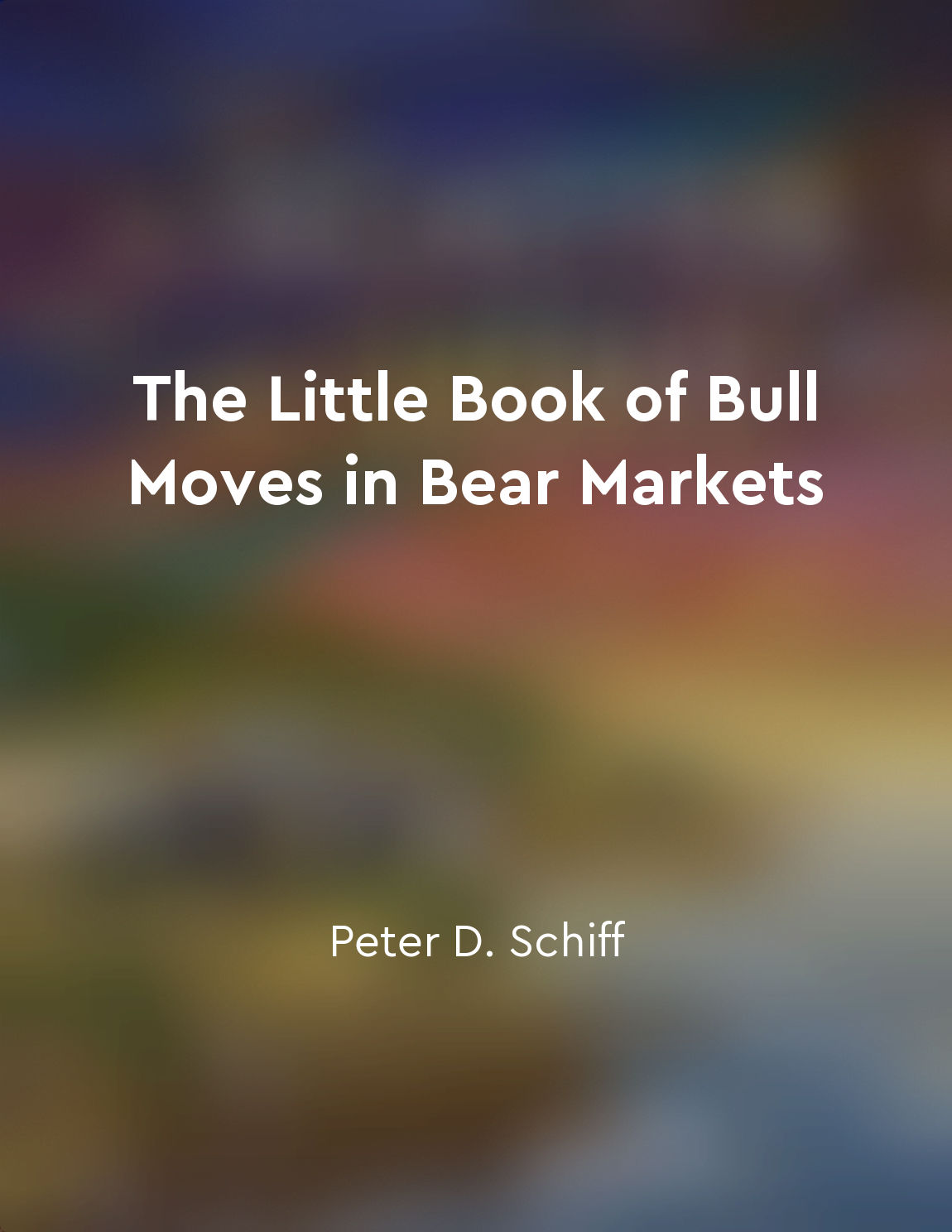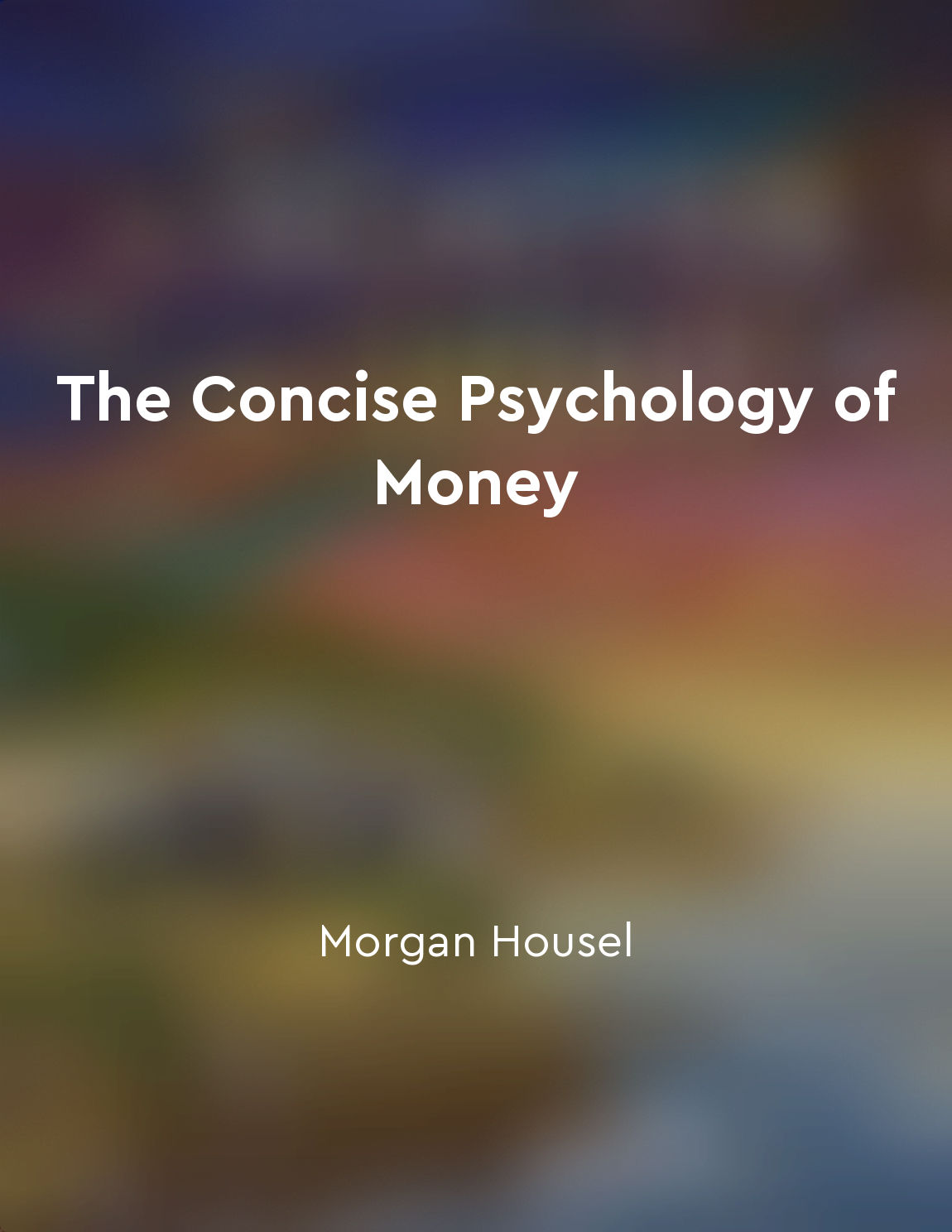Emotions should not drive investment decisions from "summary" of The Little Book of Value Investing by Christopher H. Browne
Investing can be an emotional rollercoaster. When markets are booming, it's easy to get caught up in the excitement and make rash decisions. Conversely, when markets are plummeting, fear can take over and drive investors to panic sell. These emotional reactions can lead to poor investment choices that can ultimately hurt your financial well-being. It's important to remember that investing should be approached with a clear, rational mindset. Emotions like fear and greed can cloud judgment and cause investors to deviate from their long-term investment strategies. Instead of making decisions based on fleeting emotions, it's crucial to stick to a well-thought-out investment plan that aligns with your financial goals. One way to combat the influence of emotions on investment decisions is to adopt a value investing approach. Value investors focus on the fundamentals of a company, such as its earnings, assets, and future growth potential, rather than getting caught up in market fluctuations. By taking a disciplined, analytical approach to investing, value investors can make informed decisions that are based on objective criteria rather than emotional reactions. Another strategy to avoid letting emotions drive investment decisions is to establish a set of investment rules and stick to them rigorously. By setting clear guidelines for when to buy and sell investments, you can remove the temptation to make impulsive decisions based on emotions. This disciplined approach can help you stay on track and avoid making costly mistakes that stem from emotional reactions. In the world of investing, emotions are often the enemy of sound decision-making. By recognizing the impact of emotions on investment choices and taking steps to mitigate their influence, investors can improve their chances of achieving long-term financial success. Adopting a rational, disciplined approach to investing, such as value investing, and establishing clear investment rules can help investors make more informed decisions that are based on logic rather than emotion.Similar Posts

Printing money can lead to inflation
When a government decides to print more money, it essentially dilutes the value of the currency already in circulation. Imagine...
Rich dad focuses on acquiring assets
Rich dad's philosophy revolves around the idea that one should focus on acquiring assets rather than liabilities. According to ...
Utilize stoploss orders to limit losses
To protect your investment in the stock market, it is crucial to implement stoploss orders. These orders act as a safety net, p...
Market timing is nearly impossible to do successfully
Attempting to time the market is a fool's errand. It is a common delusion that many investors fall prey to despite overwhelming...

Our financial goals should be aligned with our values and priorities
Our values and priorities shape the decisions we make in every aspect of our lives, including our finances. When it comes to se...

Stick to the simple path to wealth for longterm success
The path to wealth is not a complicated one. In fact, it is quite simple. By sticking to the simple path, you can achieve long-...

Liabilities take money out of your pocket
If you want to become financially free, you need to understand the difference between assets and liabilities. Assets put money ...
Compound interest is a powerful wealthbuilding tool
Compound interest is a wonder of the financial world. It's like a magic trick that keeps on giving. The concept is simple: your...

Develop multiple streams of income
The concept of developing multiple streams of income is a fundamental principle in achieving financial success. This concept em...
Money cannot solve all problems
In the pursuit of financial success, many people believe that money is the ultimate solution to all their problems. However, th...
